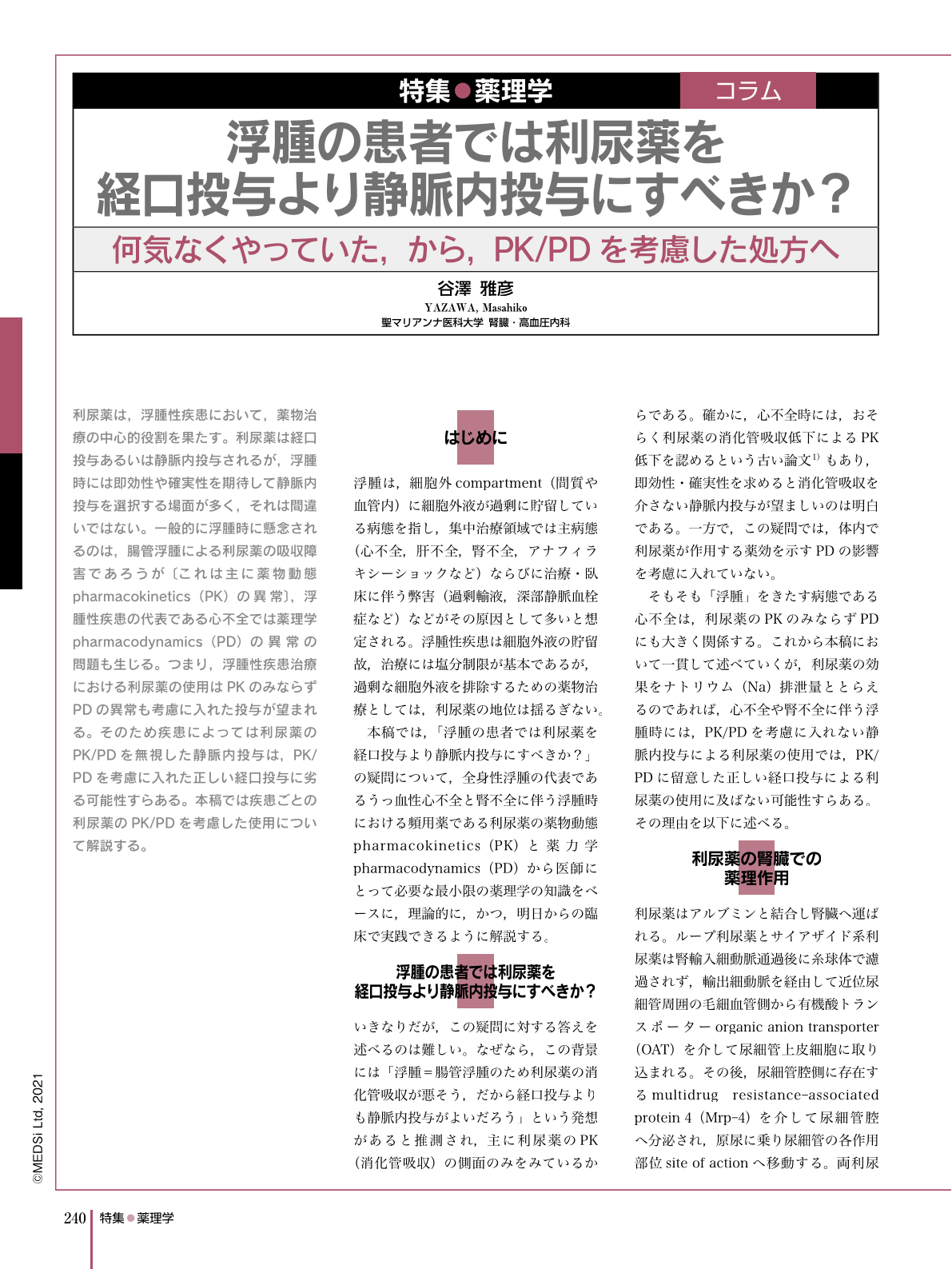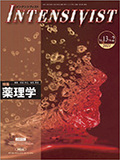Japanese
English
- 有料閲覧
- Abstract 文献概要
- 1ページ目 Look Inside
- 参考文献 Reference
利尿薬は,浮腫性疾患において,薬物治療の中心的役割を果たす。利尿薬は経口投与あるいは静脈内投与されるが,浮腫時には即効性や確実性を期待して静脈内投与を選択する場面が多く,それは間違いではない。一般的に浮腫時に懸念されるのは,腸管浮腫による利尿薬の吸収障害であろうが〔これは主に薬物動態pharmacokinetics(PK)の異常〕,浮腫性疾患の代表である心不全では薬理学pharmacodynamics(PD)の異常の問題も生じる。つまり,浮腫性疾患治療における利尿薬の使用はPKのみならずPDの異常も考慮に入れた投与が望まれる。そのため疾患によっては利尿薬のPK/PDを無視した静脈内投与は,PK/PDを考慮に入れた正しい経口投与に劣る可能性すらある。本稿では疾患ごとの利尿薬のPK/PDを考慮した使用について解説する。
Diuretics play a key role in the pharmacologic treatment of several disorders and are usually administered by either the oral or intravenous route. Clinicians correctly expect immediate and defined effects from intravenous rather than oral administration in patients with edema. Although clinicians are generally concerned about the negative effect of intestinal edema on drug absorption that may disturb the pharmacokinetics (PK), congestive heart failure may also have a similar effect on pharmacodynamics (PD). Appropriate use of diuretics for patients with edema needs consideration of both PK and PD. Thus, intravenous administration of diuretics without taking PK/PD into account might be less effective than oral administration taking PK/PD fully into account in patients with congestive heart failure. In this chapter, we describe how to fully integrate PK/PD when prescribing diuretics to treat patients with edema.

Copyright © 2021, MEDICAL SCIENCES INTERNATIONAL, LTD. All rights reserved.


